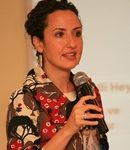The steady rate of economic growth in emerging market countries such as Brazil, India and Turkey is not only affecting the way private money is channelled for public good; it is also affecting the way in which public money is allocated for public good ‒ particularly overseas.
A recent report published by the German Marshall Fund refers to these and other countries as ‘global swing states’, whose economic growth has led to increased geo-political involvement and influence in shaping the international world order in terms of trade, security and development. As one of those ‘swing states’, Turkey has been steadily increasing its development assistance particularly to the Caucuses, Central Asia, Balkans, Eastern Europe, Middle East and Africa (a total of US$1 billion in 2011). It has also made major commitments to UN initiatives such as the Least Developed Countries program (the aim of which is to allocate an estimated US$10 billion by 2020). There is, however, a missing link in all of this: Formal strategies to engage NGOs and foundations in the design, delivery and implementation of aid programs.
TIKA (Turkey’s aid agency) works with only a handful of Turkish NGOs in a limited aid coordination capacity, lacking any formal and comprehensive strategy. Nor do they have programs and budgets in place to engage and support civil society in recipient countries. However, experienced agencies in this field (such as USAID, Europeaid and SIDA) and non-governmental partners who work with them (such as the International Center for Not for Profit Law/ICNL) would be the first to emphasize the importance of such strategies and programs on the overall impact and effectiveness of aid.
Turkey and many other countries benefited greatly from this form of assistance, which helped facilitate government-NGO cooperation in policy and service delivery and allocated resources to strengthen the civil society sector ‒ all of which contributed to strengthening democracy and facilitating sustainable development. This type of support is especially valuable in countries where there is no precedent for government-NGO relations/cooperation, and where private philanthropy is less apt and keen to fund NGOs, nor to support programs that strengthen the civil society sector as a whole.
While Turkey’s increasingly active role in contributing to global development is to be commended, this missing link must be addressed. Creating spaces for ‘emerging aid agencies’, NGOs, foundations and other actors to discuss these issues and ways forward can help to ensure that these new donors are developing and implementing more effective aid programs.
Filiz Bikmen is a philanthropic consultant and vice chair of the International Center for Not for Profit Law. This article is based on a longer article written for the German Marshall Fund ‘On Turkey’ series, published on 6 February 2013.







Comments (1)